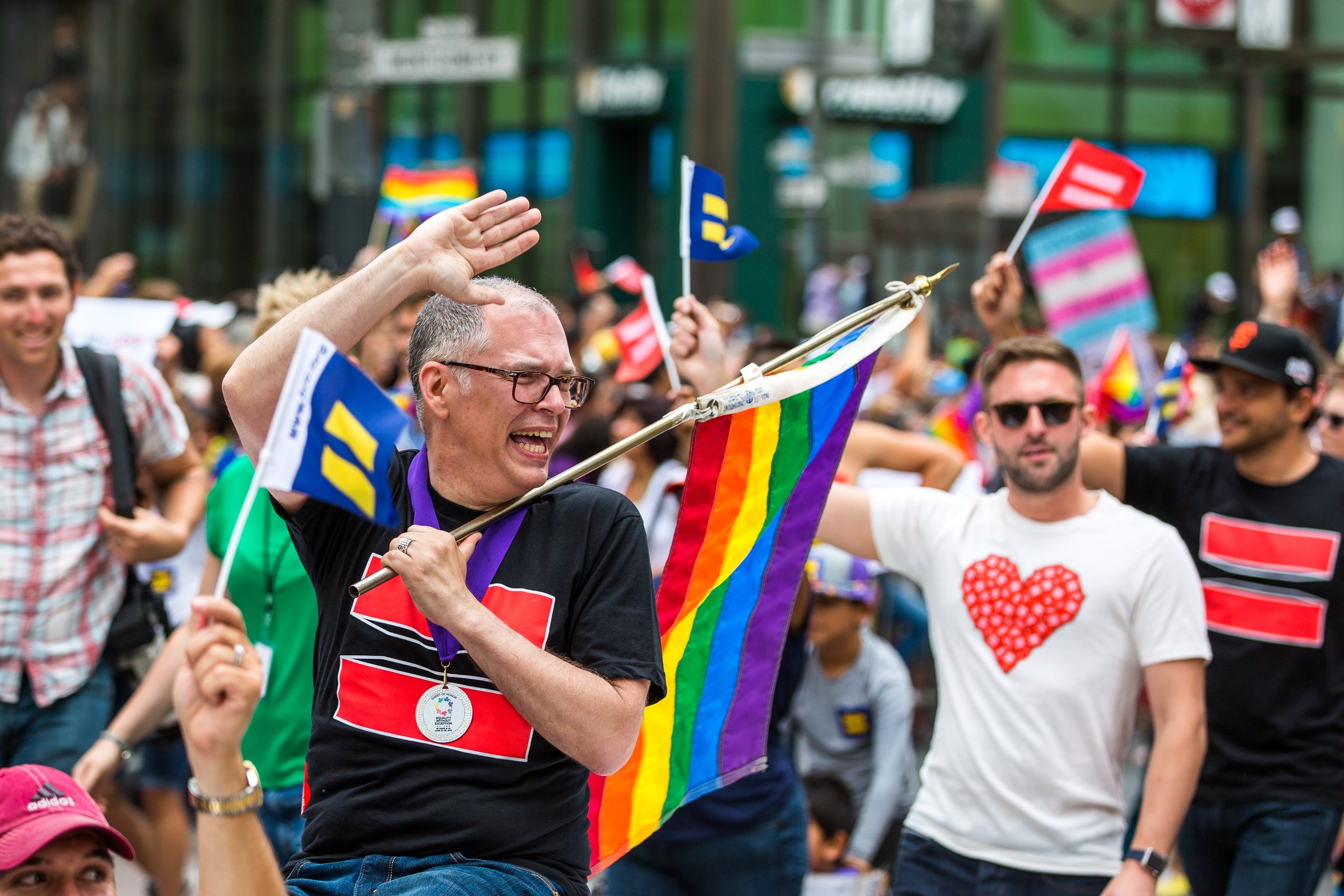Compass Gender Spotlight: The Dangers of Devaluation
The attacks of March 16 sparked demonstrations against Anti-Asian violence across the United States. (Flickr)
CW: gun violence, racism, sexual assault
The March 16 shooting that killed eight people in Atlanta, including six Asian American women, has turned national attention toward Anti-Asian racism. But the gendered dimensions of the tragedy, invoked by the shooter Robert Aaron Long blaming his attacks targeting Asian American spa workers on a “sex addiction,” reflect a history of discrimination toward Asian American and Pacific Islander (AAPI) women in America that goes back more than a century.
Compass Gender spoke to Dr. Rangita de Silva de Alwis, a scholar of global women’s rights and fellow with the Georgetown Institute for Women, Peace, and Security, to discuss the intertwined legal and cultural origins of Anti-Asian racism and misogyny in the United States—and how both legal and cultural change are integral to stopping it.
The Start of a Stigma
Recognizing the intersections of gender, race, and sexual stereotypes is key to understanding Long’s actions, according to de Silva de Alwis. “A lot of the Atlanta tragedy hinged on… the stereotyping and the biases that we have on sex work, and the way that bleeds into our sexualized and commodified view of women of color,” she said. “All women of color are commodified, sexualized, and fetishized by their sexual identity.”
These stereotypes and biases have deep roots in U.S. law and culture.
As early as 1875, the Page Act established discriminatory immigration restrictions on Asian immigrants, in addition to allowing immigration officers to turn away those who they believed were being forced into immigrating for “lewd and immoral purposes.” In practice, the law targeted Chinese women, who were often turned away under the assumption that they were prostitutes.
In an interview with Vox, author and film expert Celine Parreñas Shimizu attributed the Page Act to “fear of Chinese women as a source of contaminating sexuality.” In another interview with sociology professor Nancy Wang Yuen, she stated that there was a fear that Chinese women “carried venereal diseases and, actually, that they were temptations for white men.”
Later on, as colonial encounters between the United States and East Asia increased in the 20th century, so did the fetishization of Asian women. Shimizu explained that Korean war brides coming to the United States were seen as ideal American wives “ because [they were] sexually servile but also a domestic servant.” Shimizu noted that the relationship between the fetishization of Asian women and the U.S. military-industrial complex is close; just look “at the non-accidental ways that the cities and towns that flank the U.S. military bases had a prostitution industry.”
Throughout the Vietnam War, the U.S. military set up several Rest and Recreation (R&R) Centers to boost soldiers’ morale, igniting sex work industries around these areas. Many of these stations still exist around the world. According to North Californian Attorney and author of White Sexual Imperialism Sunny Woan, “R&R facilities have been, and continue to be, a vital component of the U.S. military policy.”
Military officers at these bases often abused and fetishized sex workers, and according to Woan, the military turned a blind eye to these atrocities because “with pervasive disregard for human rights, the military accepts access to Indigenous women's bodies as a ‘necessity’ for American GIs stationed overseas.”
Despite former President George W. Bush signing an executive order making prostitution illegal under the Uniform Code of Military Justice in 2005, the government usually punishes the sex worker (who, in many cases, is a victim of sex trafficking) rather than the sex traffickers or those soliciting sex. Furthermore, the past reliance on sex work in military camps has resulted in commercial sex zones thriving in and around U.S. military bases.
Persistent Prejudice
Experts have pointed to the hypersexualization of Asian women as a contributor to incidents of aggression and violence targeting them. Long claimed that his spree of killings was fueled by a desire to “eliminate his temptations.” The Atlanta shooter’s words draw direct parallels to the language of the Page Act.
Sex worker advocacy organizations, including Butterfly in Toronto, have called for the decriminalization of sex work in order to combat the stigmatization and violence faced by Asian sex workers. (Twitter)
Massage parlors, especially those in which Asian people work, have been stigmatized as centers of sex work. Places in which sex workers are suspected to be employed are frequently subject to police raids under the pretense of anti-trafficking, which is often used as a justification to arrest sex workers and detain and deport undocumented people.
Considering the unique risks that police pose to sex workers, Red Canary Song, an advocacy organization for Asian sex workers, argues against police-led anti-human trafficking strategies in favor of decriminalization of sex work. Gold Spa massage parlor, which was one of the businesses targeted by Long attacked on March 16, has been targeted by police from 2011 to 2013 when they arrested ten women for sex work.
Today, however, the connection to the sex work industry in conversations about hate towards the AAPI community remains taboo, largely due to the stigma surrounding sex work. In an interview with NPR, Yves Nguyen, an organizer with Red Canary Song, said, "People want to be like, 'Don't assume that they're sex workers,' because they think that there's shame attached to it.”
Regardless of whether the victims engaged in sex work, Nguyen advocates for intersectionality in conversations surrounding the shooting. “There's a hatred for both sex workers and immigrants and being Asian and being women, and they all intersect. It would be irresponsible to not talk about all of those parts,” she said.
The specific challenges faced by Asian American women are reflected in high rates of racist incidents directed toward them—the organization Stop AAPI Hate found that between March 2020 and February 2021, women reported 2.3 times more incidents of Anti-Asian discrimination than men. Additionally, 23 percent of Asian and Pacific Islander women in the United State are reported to have faced sexual violence.
Helen Zia, an activist against anti-Asian violence, says that because offenses against Asian women are deemed as sexual, the racial side to them is often erased. Stereotypes of submissiveness contribute to the idea that Asian women are vulnerable, making aggressors believe that they won’t fight back and are thereby an ideal target for gendered violence.
The Limitations of Statutes
Despite its role in perpetuating racial and sexual stereotypes about AAPI women, the law has come a long way since blatantly discriminatory legislation like the Page Act. But de Silva de Alwis pointed to international law as one area where the U.S. can take a more proactive stance against violence against women. She noted that the United States is one of the few states that have not ratified the Convention on the Elimination of All Forms of Discrimination Against Women (CEDAW).
Most UN member states have signed and ratified CEDAW (shown in green), while a few countries (shown in red) have done neither. The United States has signed, but not ratified, the convention. (Wikimedia Commons)
Tragedies like the Atlanta shooting and issues of sexual violence are rarely discussed in the context of human rights when they take place in the United States, but de Silva de Alwis made the case for “Shin[ing] the spotlight on human rights in the United States and us[ing] the human rights vernacular to do that.”
“The United States is part of the comity of nations,” she emphasized, rejecting the idea that human rights violations are exclusively a problem for other countries.
For effective legal responses to systemic issues like Anti-Asian racism and misogyny, de Silva de Alwis highlighted the importance of including victims of violence and community members at the decision-making table, and she emphasized the need to bring legal changes into the local communities that they impact: “There is a sense that there are these international norms and they don’t filter down to the community, but we have to look at the kind of translation process… how can we use those norms, those normative structures, and convey it, through photography, through art, and through activism.”
In light of the persistent tropes and stereotypes stemming from a long history of stigmatization, however, de Silva de Alwis does not believe legal change is enough to fully address the racism and misogyny faced by Asian American women. She emphasized the need to consider “everyday bias, everyday stereotyping… those subtle biases that are so pervasive, that are so pernicious but are so invisible, because we don’t even give word to it, the ways in which subtle biases continue to oppress women and women of color.”
She continued, “Those biases that we see in everyday life, those subtle biases are so normalized… that there is no law to address it.”
De Silva de Alwis pointed to education about women’s rights as a particularly influential tool for combatting violence against women and women of color at the source: “the root cause of violence against women is a devaluation of women and girls,” she argued.
Though changing a particular law or school curriculum cannot undo more than a century of discrimination and stigmatization against AAPI women in the United States, de Silva de Alwis above all emphasized the need to understand the Atlanta attack not only as a uniquely horrific tragedy but in its larger systemic context as a catalyst for change: “We need to ensure that we use this as a tipping point to address those structural issues.”
Alec Weiker contributed reporting.













